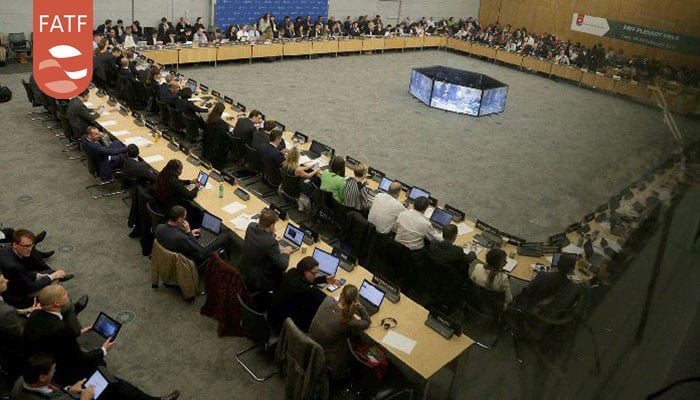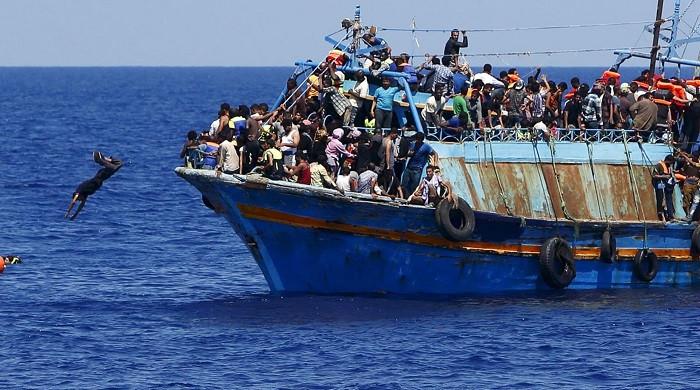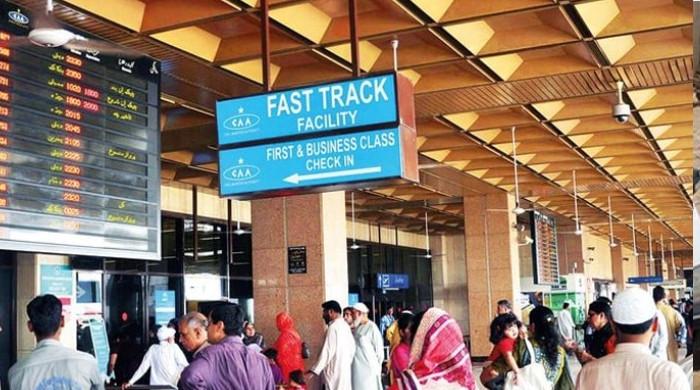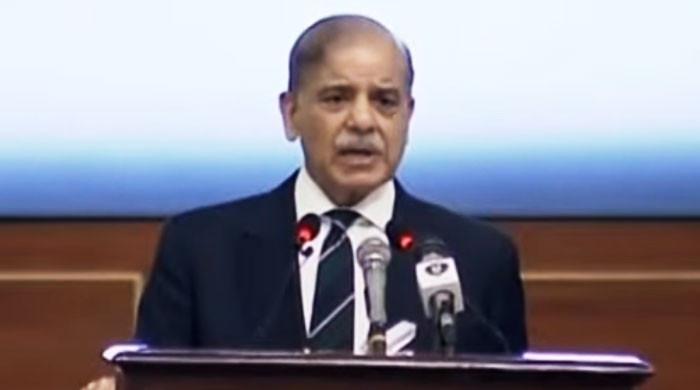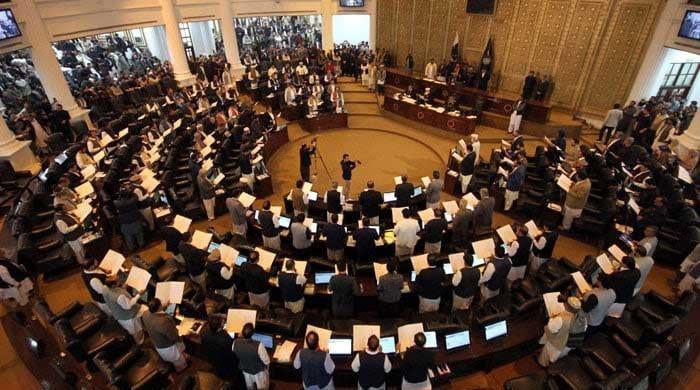Surgical strikes being conducted on country’s political stability: Ahsan Iqbal
'Some steps taken creating an impression of target killing in politics'
February 24, 2018
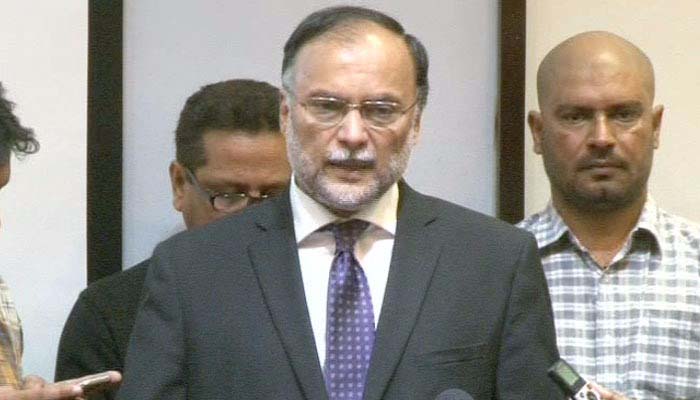
LAHORE: Interior Minister Ahsan Iqbal on Saturday said that surgical strikes were being carried out on the country’s political stability.
Speaking to journalists, Ahsan warned that Pakistan is facing conspiracies and the country’s enemies were working overtime to spread anarchy. He added that any person or institution moving the country towards anarchy could not be considered a friend.
Ahsan also mentioned the threat of a surgical strike that Pakistan had received from a neighbouring country, adding that country was also faced with similar internal threats.
“We need to be united. Our neighbouring country is threatening us with surgical strikes and we will face this threat. But surgical strikes are also being carried out on the political stability in the country. There is no room for this. Why are we becoming our own enemy?”
When asked about the Senate elections, Iqbal responded that some steps that have been taken are creating the impression that the process of target killing is underway in politics.
According to the interior minister, the Pakistani voter is no longer comparable to a primary school student, rather someone who has received a PhD in politics.
“They [Pakistanis] are well informed and analyse everything. This is the reason that the PML-N, despite steps being taken against us, is not experiencing any political backlash. In fact, our political support is increasing.”
Iqbal stressed on the supremacy of Parliament, calling it the most important institution in the country that gives birth to the constitution and other institutions.
“The Parliament decides on how many judges will be appointed in the Supreme Court or what the pension of a Supreme Court judge will be; it also gives birth to the structure of the judiciary. It decides on the prime ministerial criteria and who will be the next premier.”
“The Parliament is the representative of the people of Pakistan,” he added.
‘FATF decision will come in June’
Interior Minister Ahsan Iqbal said that a decision of the Financial Action Task Force (FATF) to place Pakistan on the grey-list of the global money laundering watchdog will be made in June.
“The resolution against us was on political grounds to pressurise Pakistan. We were on this watch list till 2015 and despite this, we grew the country’s economy. It is wrong to speculate that this will have dire economic consequences on the country.”
Iqbal emphasised that Pakistan had made the most efforts to combat terrorism. “We are taking steps not to please the US but four our own benefit. We will follow our own agenda to achieve national goals.”
Pakistan was not added to the FATF grey-list after the conclusion of the task force’s plenary session in Paris on Friday. The list called 'jurisdictions with strategic deficiencies', available on FATF's website, includes the names of Ethiopia, Iraq, Serbia, Sri Lanka, Syria, Trinidad and Tobago, Tunisia, Vanuatu, and Yemen. It excluded Pakistan's name.
Speaking to Geo News correspondent Khalid Hameed Farooqi, manager communications FATF Alexandra Wijmenga-Daniel said the list was "final".
When asked about reports circulating in international media claiming Pakistan had been added to the grey-list, she said FATF was not responsible for reports in the media.
Prime Minister's adviser on finance Miftah Ismail has alleged that Pakistan was made a “target of politics” at the FATF meeting.
In an interview to a private TV channel, Ismail said Pakistan was made a “target of politics” despite the country’s tangible efforts to crack down on money laundering and terror financing.
